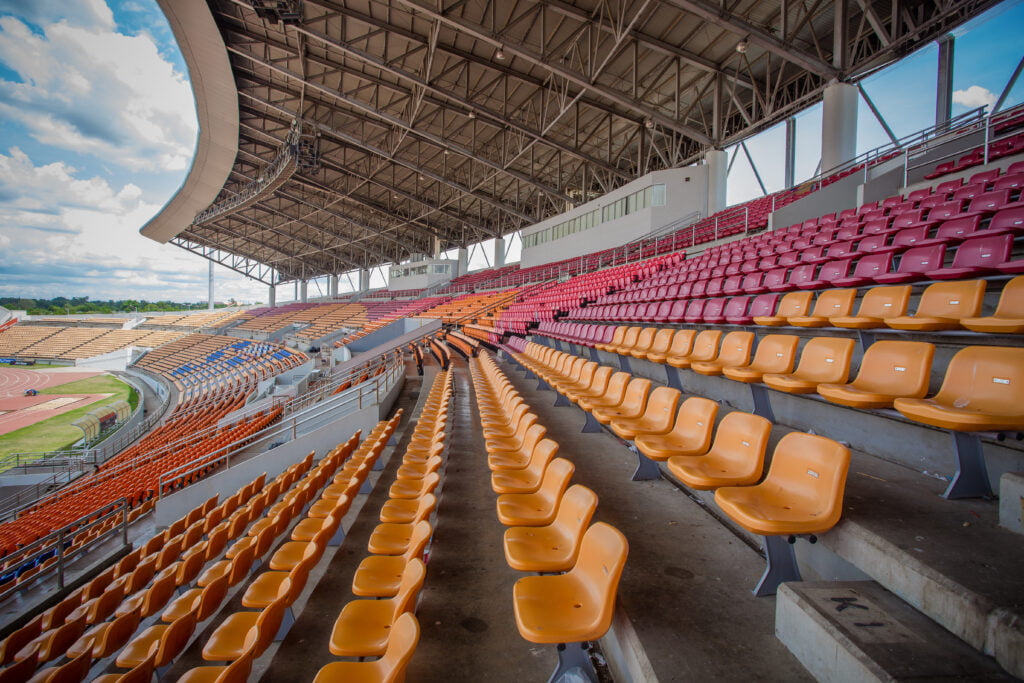Safety at sports and recreational events is a vital concern for all of us, whether we are participants, organisers, or spectators. The Safety at Sports and Recreational Events Act 2 of 2010 (SASREA) sets the minimum safety and security standards required to safeguard the physical well-being of people at these events. This legislation is designed to protect everyone involved, ensuring that whether we’re attending a large stadium event or a smaller recreational activity, our safety is prioritised.

We need to be aware of the responsibilities placed on event organisers by SASREA. They must ensure that every event is planned with robust safety measures that protect both persons and property. This includes everything from crowd management to emergency response plans. Understanding these requirements helps us appreciate the coordinated efforts that go into making sure we can enjoy sports and recreational activities without fear.
By following the guidelines established by SASREA, not just organisers, but all of us contribute to a safer environment. We can be confident that measures are in place to protect us and that the Minister for Sports and Recreation oversees these initiatives to ensure compliance. This collective effort makes our sporting and recreational experiences both enjoyable and secure. For more detailed information, you can read about SASREA’s impact on event safety.
Safety at Sports and Security Measures

In this part, we examine critical elements like risk categorisation, accreditation, and security services at sports and recreational events. Our goal is to understand how these measures ensure safety and security for everyone involved.
Risk Categorisation and Safety Certificates
To begin with, identifying the risk level of an event is crucial. Under SASREA, events are categorised as low, medium, or high-risk based on factors such as attendance numbers, event type, and past incidents.
For each risk category, specific safety certifications must be obtained. Local authorities issue safety certificates ensuring that venues meet necessary standards. Certificates cover infrastructure, emergency services, and evacuation plans. This systematic approach allows us to mitigate potential threats and ensure the safety of participants, staff, and properties.
Accreditation and Training of Event Role-players
Accreditation is another essential facet. Event role-players, including organisers and security personnel, must undergo rigorous accreditation processes. Accredited individuals or companies must comply with SASREA standards.
Apart from accreditation, training is vital. We focus on preparing our teams to handle various scenarios effectively. Training modules cover crowd management, emergency response, and first aid. This ensures that all involved parties are well-equipped to maintain safety during events.
Security Services and Safety at Venues
Providing comprehensive security services is fundamental for event safety. Security teams are tasked with maintaining order, monitoring entry points, and responding to incidents. They work closely with police and emergency services to manage safety.
Stadiums and other venues are also designed with safety in mind. Features like secure entry points, surveillance systems, and clearly marked emergency exits contribute to the overall security of the space. This ensures that any issues can be promptly addressed, safeguarding participants and property.
By implementing these strategies, we can create safe environments for sports and recreational events, ensuring peace of mind for all attendees.
Regulatory Framework and Compliance

The Safety at Sports and Recreational Events Act 2 of 2010 (SASREA) outlines detailed measures to ensure that sports and recreational events in South Africa are conducted safely. Key components of SASREA include control of access to events, the role of inspectors, and the requirements for public liability insurance.
Control of Access and Prohibitions
Under SASREA, strict measures are in place to regulate who can enter sports and recreational venues. Event organisers are responsible for establishing secure access points to control the flow of spectators. They must also enforce prohibitions on dangerous items such as weapons and fireworks.
Pre-event inspections are required to ensure all safety protocols are in place. Additionally, emergency exits must be clearly marked, and personnel must be trained to handle evacuations efficiently. These measures help in creating a secure environment for everyone present.
Duties of Inspectors and Issuance of Prohibition Notices
Inspectors play a crucial role in ensuring compliance with SASREA. They are authorised to carry out inspections at any time to verify that safety measures are being observed. It is their duty to enforce regulations, including the examination of entry points and the prohibition of unauthorised items.
If inspectors find any breaches in safety protocols, they can issue prohibition notices. These notices compel organisers to rectify the issues immediately. Failing to comply with these notices can result in the suspension of the event, ensuring that public safety remains a top priority.
Spectator Exclusion Notices and Public Liability Insurance
Spectator exclusion notices are another important aspect of SASREA. These notices allow authorities to ban individuals who pose a safety risk from attending events. This could include people with a history of violent behaviour or those under the influence of alcohol or drugs.
Public liability insurance is mandatory for all event organisers. This insurance covers any potential damages or injuries that occur during the event. By requiring this insurance, SASREA ensures that both spectators and participants are financially protected in case of accidents or incidents. This adds an extra layer of security and makes event organisers more accountable.
Enforcement and Legal Implications

The Safety at Sports and Recreational Events Act 2 of 2010 (SASREA) establishes clear guidelines for enforcement and legal procedures. It outlines specific offences and penalties, along with how fees and charges are implemented.
Offences, Penalties, and Appeal Processes
Under SASREA, several offences are identified, including failure to comply with safety measures or obstructing officials. Penalties for these offences can be severe. For example, fines can reach up to R100,000, or there may be imprisonment for up to 10 years.
The Act also provides for an appeal process. Those penalised under SASREA can appeal to an appointed Appeal Board. The Appeal Board reviews cases to ensure fair treatment. They can uphold, modify, or overturn decisions based on the evidence presented.
This structure is crucial for maintaining order and ensuring compliance. It ensures that everyone involved in sports and recreational events adheres to the safety standards required by the law.
Implementation of Fees and Charges
SASREA outlines the implementation of fees and charges related to safety measures. Event organisers are required to pay these fees, which cover the cost of ensuring safety and enforcing regulations. The fees vary depending on the scale and nature of the event.
The Act allows for transparent and consistent fee schedules. These fees help fund public safety personnel and other resources necessary to maintain a secure environment.
Proper implementation of these fees ensures that organisers take their responsibilities seriously. It also enables authorities to allocate resources efficiently, ensuring the sustainability of safe event practices.
Frequently Asked Questions

The Safety at Sports and Recreational Events Act 2 of 2010 (SASREA) aims to set safety and security standards for sports and recreational events. This section addresses key aspects such as the primary objectives, accountability, and specific requirements under the Act.
What are the primary objectives of the Safety at Sports and Recreational Events Act?
The main goals of SASREA are to ensure the safety and security of all participants and spectators at sports and recreational events. The Act sets minimum safety standards and outlines measures to protect individuals from potential risks and hazards during events.
Who is held accountable for ensuring safety during official sports and recreational events?
Event organisers and venue owners bear the primary responsibility for safety. They must comply with the specific requirements outlined in SASREA, ensuring that proper safety measures are in place. Failure to adhere to these regulations can result in significant penalties.
How does one apply for a Venue Operations Centre (VOC) at events?
To establish a VOC, organisers must submit an application to the local authorities well in advance of the event. The application should include a detailed safety plan, risk assessment, and information about the event’s scope and size. Approval is mandatory before the VOC can become operational.
What are the requirements for obtaining a venue grading certificate under the Act?
Obtaining a venue grading certificate involves meeting specific standards related to safety and security. An inspection by authorised personnel is required, focusing on aspects such as emergency exits, crowd control measures, and medical facilities. Successful completion of this inspection leads to certification.
What regulations were introduced in the 2017 amendments to the Act?
The 2017 amendments to SASREA introduced stricter regulations on crowd management and increased the accountability of event organisers. These changes also added new requirements for the use of advanced security technologies and mandated more comprehensive risk assessments for larger events.
How do the provisions of the Act affect the planning and execution of large public events?
SASREA’s provisions necessitate thorough planning and preparedness. Event organisers must implement detailed security protocols and coordinate with local authorities to ensure compliance. These requirements can impact timelines, resource allocation, and overall event logistics, making adherence to the Act a critical aspect of event management.




